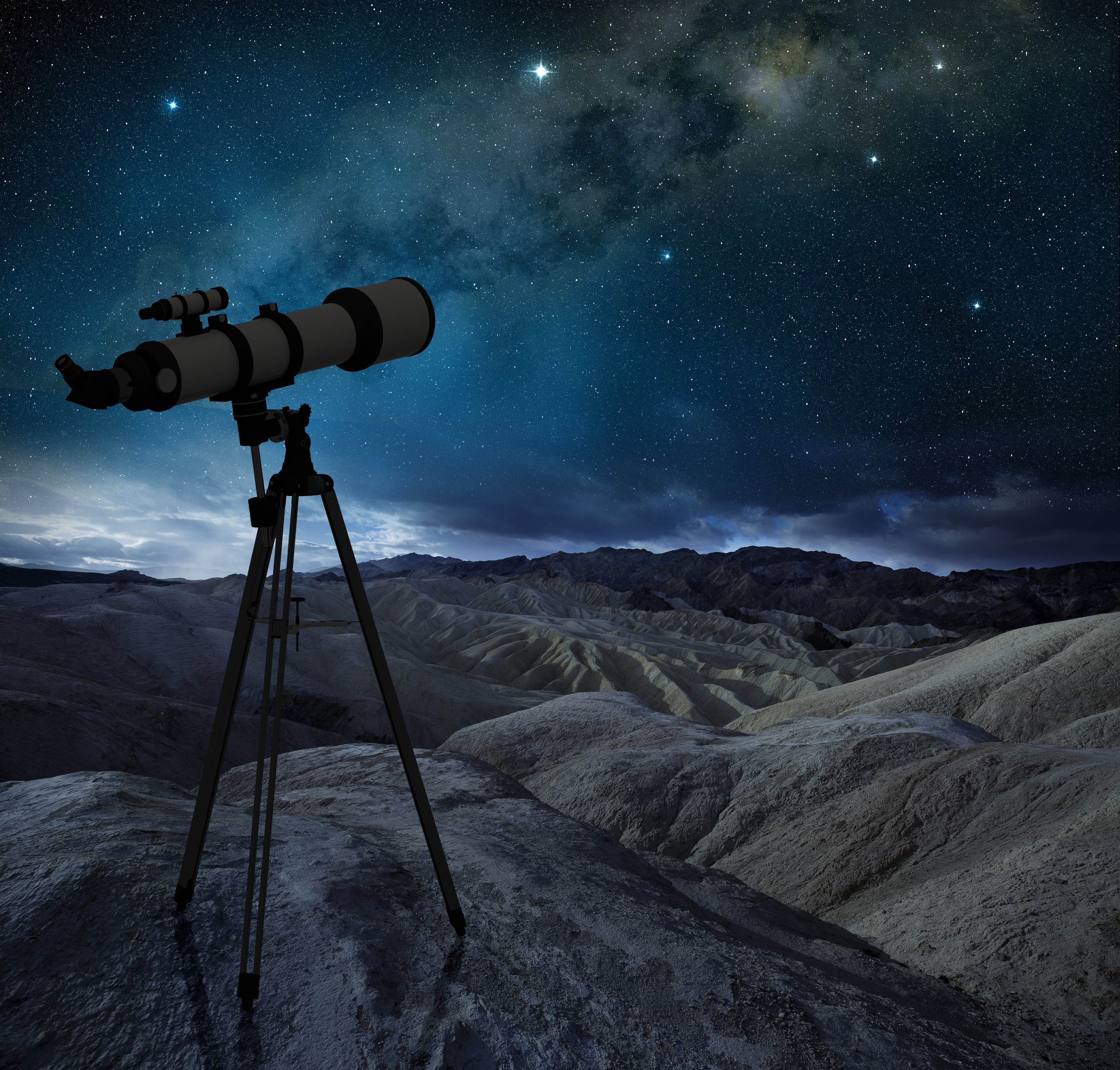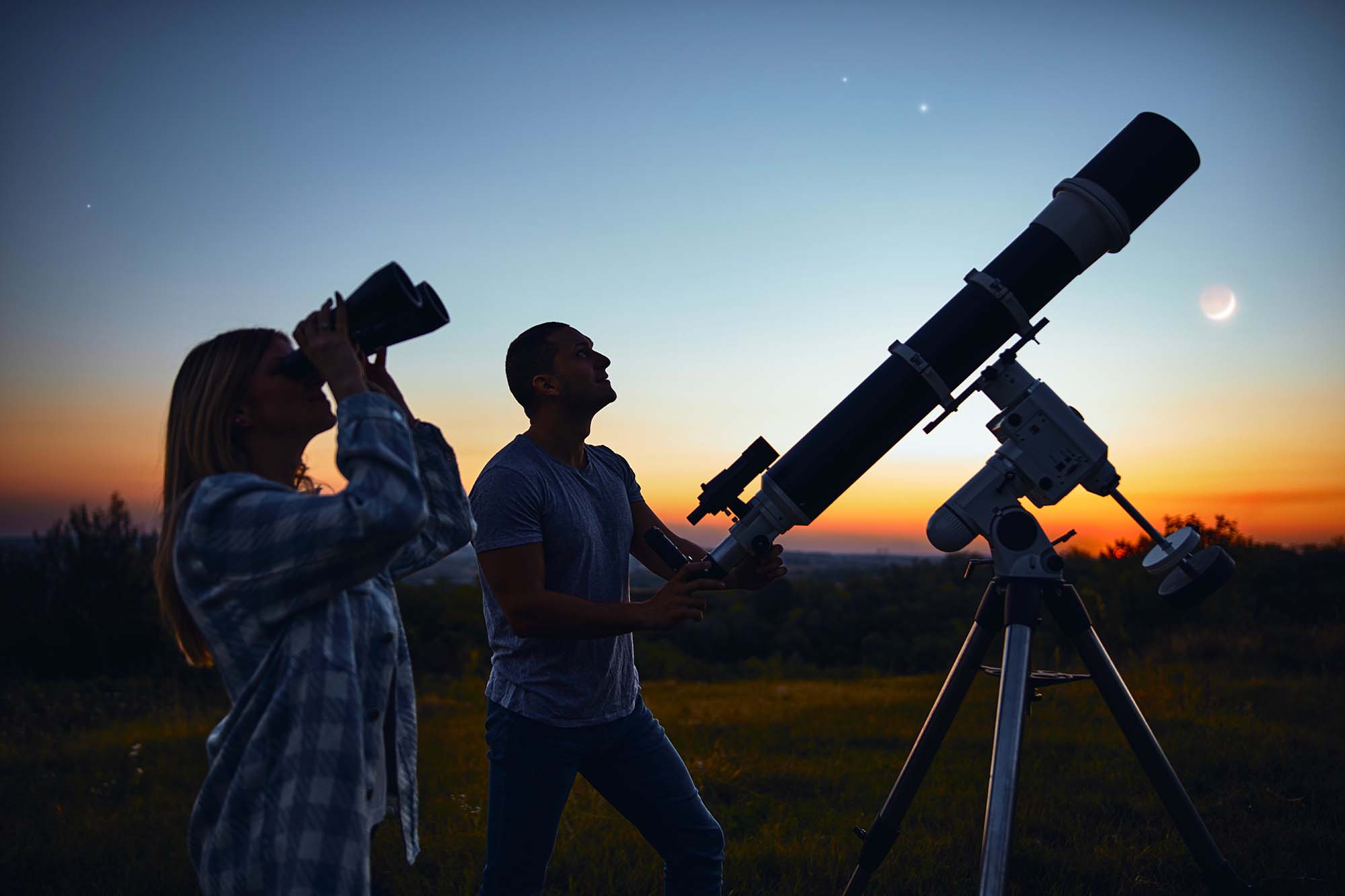Stargazing is a fascinating hobby that connects us to the vastness of the universe. With the right telescope, beginners can explore the night sky and discover the wonders that lie beyond our planet.
However, choosing the right telescope can be overwhelming, especially for those just starting out. The key is to find a telescope that is easy to use, reliable, and offers clear views of celestial objects. In this guide, we will explore the top five telescopes for beginners, providing you with all the information you need to make an informed decision.
Why Stargazing is a Great Hobby
Stargazing offers a unique way to connect with nature and the cosmos. It’s a hobby that requires patience, curiosity, and a willingness to learn. Whether you’re observing the craters on the Moon, the rings of Saturn, or distant galaxies, stargazing offers endless opportunities for discovery. It’s also a hobby that can be enjoyed solo or with friends and family, making it a versatile activity for all ages.
One of the great things about stargazing is that it can be as simple or as complex as you want it to be. Beginners can start with basic observations of the Moon and planets, while more advanced enthusiasts can delve into deep-sky objects and astrophotography. No matter your level of experience, stargazing provides a sense of awe and wonder that few other hobbies can match.
What to Look for in a Beginner Telescope
When choosing a telescope for beginners, several factors should be considered to ensure a positive experience. The most important aspects include aperture, ease of use, portability, and budget.
Aperture: The aperture of a telescope refers to the diameter of its main optical component, which can be either a lens or a mirror. The aperture is crucial because it determines how much light the telescope can gather, and therefore, how clear and bright the images will be. For beginners, a telescope with an aperture of at least 70mm (for refractors) or 114mm (for reflectors) is recommended.
Ease of Use: For those new to stargazing, a telescope that is easy to set up and operate is essential. Complicated setups and difficult-to-use controls can lead to frustration and discourage further exploration. Telescopes that come with clear instructions and require minimal assembly are ideal for beginners.
Portability: Depending on where you plan to stargaze, portability may be an important factor. If you live in an area with light pollution, you may need to transport your telescope to a darker location. Telescopes that are lightweight and easy to carry make this process much easier.
Budget: While it’s tempting to go for the most expensive option, it’s important to consider your budget. Fortunately, there are many high-quality telescopes available at various price points. It’s possible to find a great beginner telescope without breaking the bank.
Top 5 Telescopes for Beginners
Now that we’ve covered what to look for, let’s dive into the top five telescopes that are perfect for beginners. Each of these telescopes has been selected based on its ease of use, quality, and value for money.
1. Celestron AstroMaster 130EQ The Celestron AstroMaster 130EQ is a fantastic option for beginners who are serious about getting into astronomy. This Newtonian reflector telescope has a 130mm aperture, which allows for clear and bright views of the Moon, planets, and even some deep-sky objects like star clusters and galaxies. The equatorial mount helps track celestial objects as they move across the sky, making it easier to observe them over extended periods.
One of the standout features of the AstroMaster 130EQ is its sturdy construction. The telescope is well-built and comes with a stable tripod, ensuring that your viewing experience is smooth and free from vibrations. Additionally, it includes two eyepieces (20mm and 10mm) and a red dot finderscope, which makes locating objects in the sky much easier.
Pros:
- Large aperture for bright and clear images
- Equatorial mount for easy tracking
- Sturdy construction and stable tripod
- Includes two eyepieces and a finderscope
- The equatorial mount can be challenging for absolute beginners to master
2. Orion SkyScanner 100mm TableTop Reflector Telescope The Orion SkyScanner 100mm is an excellent choice for beginners who want a compact and portable telescope without sacrificing performance. This tabletop reflector telescope has a 100mm aperture, providing sharp and bright views of the Moon, planets, and some brighter deep-sky objects.
What sets the SkyScanner apart is its ease of use. It comes pre-assembled, so you can start observing right out of the box. The simple altazimuth mount is intuitive and easy to use, allowing for smooth movements and accurate tracking of celestial objects. The compact size makes it easy to transport and set up, whether you’re stargazing in your backyard or at a remote location.
Pros:
- Compact and portable design
- Easy to use with minimal setup
- Good aperture for a small telescope
- Affordable price
- Limited to tabletop use, which may require a stable surface
3. Meade Instruments Infinity 70mm Refractor Telescope The Meade Infinity 70mm is a classic refractor telescope that is perfect for beginners. With a 70mm aperture, it provides crisp and clear views of the Moon, planets, and bright stars. Refractor telescopes like the Infinity 70mm are known for their sharp and high-contrast images, making them ideal for observing the Moon and planets.
One of the best features of the Meade Infinity 70mm is its simplicity. It comes with an altazimuth mount that is easy to use, even for those who have never used a telescope before. The telescope also includes two eyepieces (26mm and 9mm), a red dot finderscope, and an erect-image diagonal for terrestrial viewing.
Pros:
- Sharp and high-contrast images
- Easy-to-use altazimuth mount
- Includes eyepieces and finderscope
- Erect-image diagonal for daytime use
- Smaller aperture limits deep-sky viewing
4. Zhumell Z130 Portable Altazimuth Reflector Telescope The Zhumell Z130 is a great choice for beginners who want a larger aperture in a portable package. This reflector telescope features a 130mm aperture, which provides excellent views of the Moon, planets, and deep-sky objects. The altazimuth mount is user-friendly, allowing for smooth movements and easy tracking of celestial objects.
One of the standout features of the Zhumell Z130 is its portability. Despite its larger aperture, the telescope is lightweight and easy to transport. It comes pre-assembled, so you can start observing right away. The included eyepieces (25mm and 10mm) and red dot finderscope make it easy to locate and observe objects in the night sky.
Pros:
- Large aperture for bright and detailed views
- Portable and easy to set up
- User-friendly altazimuth mount
- Includes eyepieces and finderscope
- Slightly more expensive than other beginner telescopes
5. Celestron NexStar 4SE Computerized Telescope For beginners who want to take their stargazing to the next level, the Celestron NexStar 4SE is an excellent choice. This computerized telescope features a 102mm aperture and a fully automated GoTo mount, which can locate and track over 40,000 celestial objects with the push of a button.
The NexStar 4SE is perfect for beginners who want to learn more about the night sky without the hassle of manually locating objects. The telescope’s StarAlign technology makes it easy to align, even for those new to astronomy. While it is more expensive than other options on this list, the NexStar 4SE offers a level of convenience and performance that is hard to beat.
Pros:
- Fully automated GoTo mount with a database of over 40,000 objects
- StarAlign technology for easy setup
- Compact and portable design
- High-quality optics for crisp and clear views
- Higher price point
- Requires batteries or an external power source
How to Get Started with Your New Telescope
Once you’ve chosen your telescope, it’s time to get started with your stargazing adventure. Here are some tips to help you make the most of your new telescope:
Set Up Your Telescope: Carefully follow the instructions to set up your telescope. Make sure it’s stable and properly aligned before you start observing.
Start with the Moon: The Moon is a great first target for beginners. Its bright surface and detailed features are easy to observe, even with a small telescope.
Use a Star Map: A star map or stargazing app can help you locate planets, stars, and constellations. Start with bright objects that are easy to find and gradually work your way to more challenging targets.
Be Patient: Stargazing requires patience. It may take some time to locate objects and get them in focus, but the rewards are well worth the effort.
Conclusion
Choosing the right telescope is the first step in your stargazing journey. The telescopes listed in this guide offer a range of options for beginners, each with its own strengths and features. Whether you’re looking for a simple, portable telescope or a more advanced computerized model, there’s a perfect option for you. Remember, the key to successful stargazing is practice and patience. With the right telescope and a little dedication, you’ll soon be exploring the wonders of the night sky.




Share:
Astrophotography 101: How to Capture Stunning Images of the Cosmos
Astrophotography 101: How to Capture Stunning Images of the Cosmos